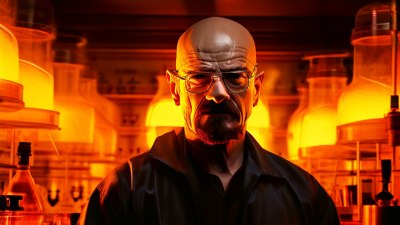Sherlock: If You Were Sherlock Holmes, How Would You Solve a Complex Case and What Does It Reveal About Your Deductive Skills?
Step into the shoes of Sherlock Holmes and discover your approach to solving a complex case. Will you rely on observation, scientific analysis, collaboration, or intuition? Your choice reveals key aspects of your deductive skills and analytical abilities!
Sherlock Holmes is renowned for his unmatched deductive skills and keen intellect, making him the ultimate detective. Imagine yourself as Sherlock, faced with a perplexing and intricate case that demands all your attention and expertise.
How you choose to approach solving this case will reveal important aspects of your deductive abilities and analytical mindset. Are you methodical and observant, scientifically rigorous, collaborative, or intuitive? This scenario will help uncover your unique approach to solving complex problems and the nature of your analytical skills.
The Scenario
You are presented with a baffling case involving a series of seemingly unrelated events and clues. The stakes are high, and the pressure is on to solve the case before it's too late. As Sherlock Holmes, you must decide how to approach the investigation to uncover the truth.
The Choices
Option A: Rely on Detailed Observation
You focus on meticulously observing every detail at the crime scene and the behavior of suspects, using your acute powers of observation to piece together the puzzle.
Option B: Use Scientific Analysis
You employ scientific methods and forensic techniques to analyze evidence, believing that hard data and empirical evidence will lead you to the solution.
Option C: Collaborate with Colleagues
You choose to work closely with your trusted colleague, Dr. John Watson, and other experts, pooling your collective knowledge and skills to solve the case.
Option D: Trust Your Intuition
You rely on your gut instincts and intuitive sense to guide you through the investigation, trusting that your subconscious mind will connect the dots.
❓❓❓ Which option would you choose and why?
What Your Choice Reveals About You
Option A: The Observant Analyst
Choosing to rely on detailed observation demonstrates your meticulous and analytical nature. You believe that every detail, no matter how small, is crucial to solving the case. This approach shows your keen eye for detail and methodical thinking but might also suggest a tendency to become overly focused on minutiae.
Traits: Observant, analytical, detail-oriented, and sometimes overly meticulous.
Example: In your professional life, you might excel in roles that require precision and attention to detail, such as forensic analysis, quality control, or auditing.
Option B: The Scientific Investigator
Opting to use scientific analysis indicates your reliance on empirical evidence and logical reasoning. You trust in the power of science and data to reveal the truth. This approach reveals your logical mind and methodical approach but might suggest a potential disregard for non-quantifiable evidence.
Traits: Scientific, logical, methodical, and sometimes overly reliant on data.
Example: Professionally, you might thrive in fields that emphasize scientific research and empirical analysis, such as laboratory research, engineering, or medical diagnostics.
Option C: The Collaborative Detective
Choosing to collaborate with colleagues shows your belief in the power of teamwork and collective intelligence. You value the insights and skills of others and believe that working together leads to better outcomes. This approach demonstrates your ability to work well with others and integrate different perspectives but might suggest a potential reliance on external validation.
Traits: Collaborative, integrative, supportive, and sometimes dependent on others.
Example: In your career, you might excel in roles that require teamwork and collaboration, such as project management, healthcare, or law enforcement.
Option D: The Intuitive Solver
Opting to trust your intuition reveals your confidence in your instincts and subconscious mind. You believe that your intuitive sense can guide you through complex problems. This approach shows your creative thinking and ability to see the bigger picture but might suggest a potential risk of overlooking concrete evidence.
Traits: Intuitive, creative, insightful, and sometimes reliant on gut feelings.
Example: Professionally, you might excel in roles that require creative problem-solving and innovation, such as design, psychology, or strategic planning.
🤔 Curious about what other decisions say about you? Explore more scenarios and discover your personality insights HERE!




















